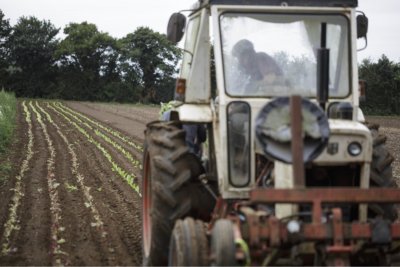News • Sustainable Farming Campaign
Lawyers and politicians raise Brexit concerns about health, workers, environment
Lawyers and parliament have issued a "wake-up call" regarding major implications of the UK’s departure from the EU for the policies, standards and legislation that govern our food system.

Initiatives by lawyers, parliament and unions have over recent weeks started to expose threats from Brexit to a wide range of standards and legislation that underpin progress towards a healthy, humane, fair and sustainable food system, as well as to the enforcement mechanisms that give them teeth, writes Sustain's Coordinator, Kath Dalmeny.
The warnings are that important health, worker and sustainability protections may be sidelined, undermined or even removed as the UK Government negotiates the UK’s departure from the EU. They also warn that health and environmental advocates, among others, seem currently under-prepared for the legal battle to come. This could have profound implications for food safety regulation, fair trade, working conditions, consumer protection, environmental standards, animal welfare, wildlife and marine conservation, marketing and health claim regulation, corporate accountability and supply chain transparency, food labelling, antibiotics use reduction, chemical and pesticide controls, waste management, and much more.
“Environmental protection in the UK risks being set back decades,” says QC Justine Thornton, who has particular concerns about the regulation of air pollution. “Common standards across Europe suit business. For the public they can hold ministers’ feet to the fire when it comes to tough political choices such as a third runway at Heathrow. But if Britain goes for hard Brexit, to a pure trading relationship, we will have no environmental safety net giving us a soft landing.”
The House of Commons Environmental Audit Committee has called on the government to "commit to maintaining in law the existing level of environmental protection currently guaranteed by EU law" as a minimum. As yet, the Government and Brexit Department has not responded, and has anyway indicated that Brexit negotiations are likely to be conducted in private, and that progress reports will be few and far between – giving little opportunity to voice concerns about the implications for domestic legislation. Meanwhile, a recent House of Commons Health Committee report, published in September, fails to highlight the impact of post-Brexit legislation and standards on public health.
Barrister Peter Roderick warns that public health community has so far been slow to recognise that the ‘public health safety net’ is also under threat. He explains that EU legislation and standards applied in the UK include “hundreds of laws and decisions governing many areas of public health interest such as clinical trials; the marketing of medicines; tobacco manufacture, sale and advertising; epidemiological surveillance; coordination and information sharing for controlling communicable diseases; food and feed; quality and safety standards of human organs intended for transplantation; employment rights, such as working time and annual leave; procurement of services and goods by public bodies; competition; climate change; air quality; drinking, bathing and fresh water quality standards; and waste management.”
In an online article published in the British Medical Journal (BMJ), Peter Roderick sets out the various types of regulations, secondary legislation and other EU obligations that will either be revoked or given questionable legal status when the UK repeals the European Communities Act (1972) as part of the Brexit process.
Unison, representing many workers in the food sector, has already started to prompt parliamentary attention to the impact of legislative changes on working conditions and protections. Labour MP Melanie Onn has introduced a Bill, seeking UK legislation “to make provision about the safeguarding of workers’ rights derived from European Union legislation after the withdrawal of the UK from the EU”.
“The British public is likely to be unaware that important safeguards are in such jeopardy. Our government must ensure that Brexit does not light a bonfire under health and environmental protection,” says Kath Dalmeny, Coordinator of Sustain, an alliance of food, fishing and farming organisations. “It feels as if the public, business, civil society and even government are largely unaware of the profound consequences of over-hasty repeal of the European Communities Act, without necessary safeguards in place for the high standards, influenced or instigated by the EU, that have been gained over recent decades. We must start a much bigger conversation about what future we want to see in a post-EU era – and ensure that a proper legal framework is in place to support it – putting public health, social justice and environmental protection at its heart.”
To keep in touch with Sustain’s emerging work on legislative aspects of the UK’s withdrawal from the EU, and implications for food, fishing and farming, contact Kath Dalmeny: kath@sustainweb.org.
Published Wednesday 14 September 2016
Sustainable Farming Campaign: Sustain encourages integration of sustainable food and farming into local, regional and national government policies.





